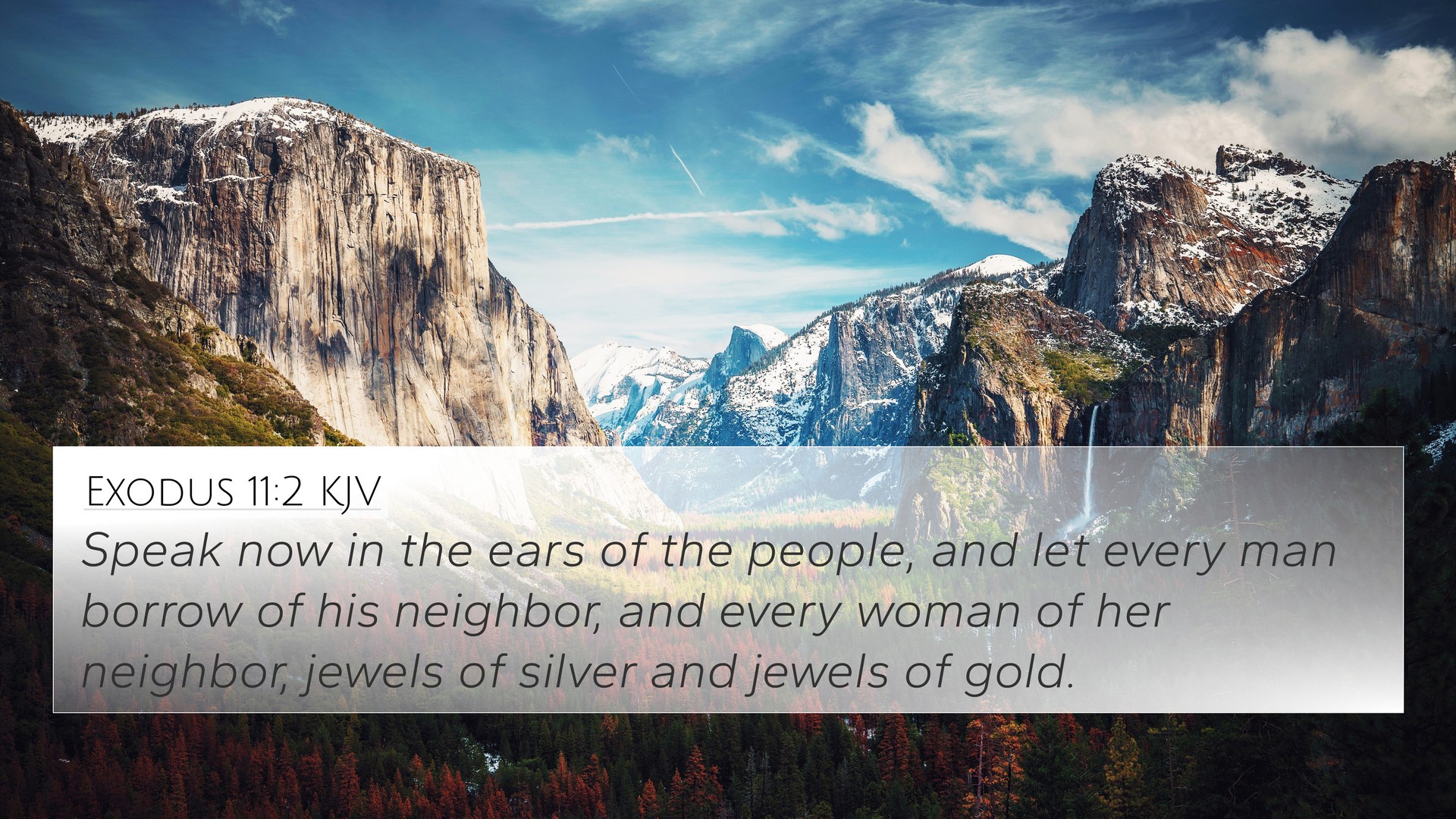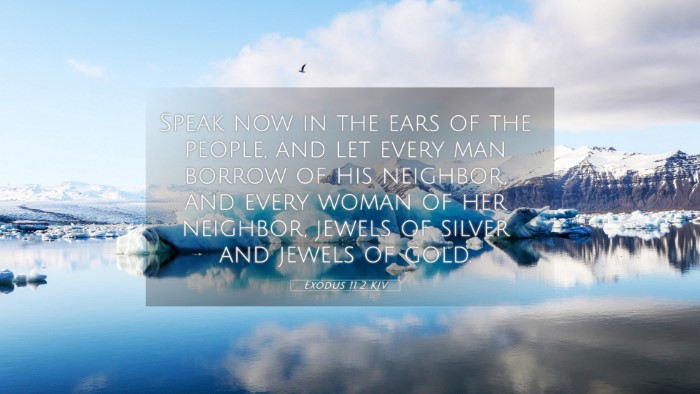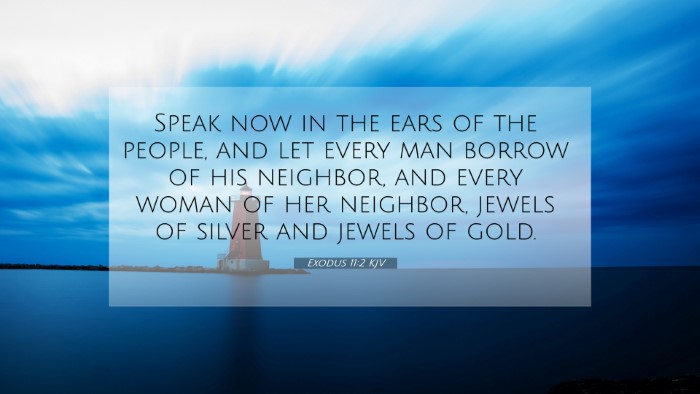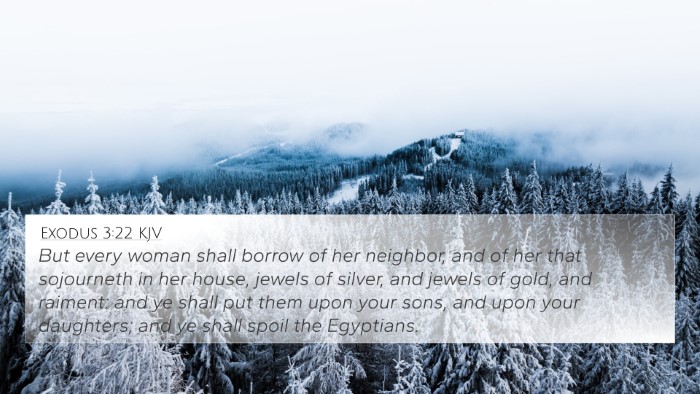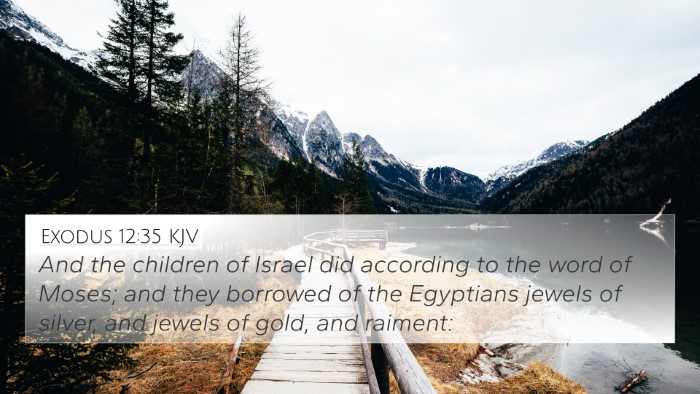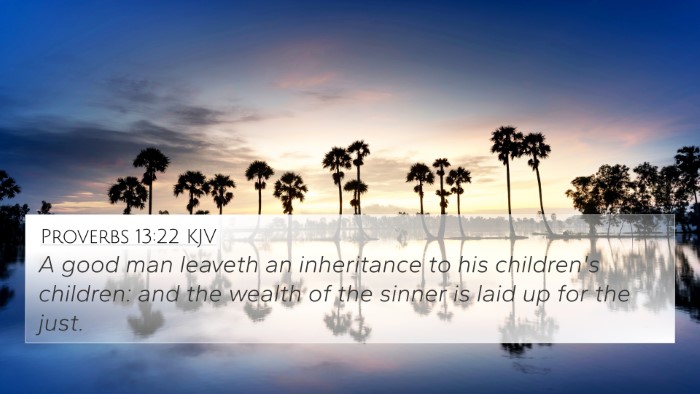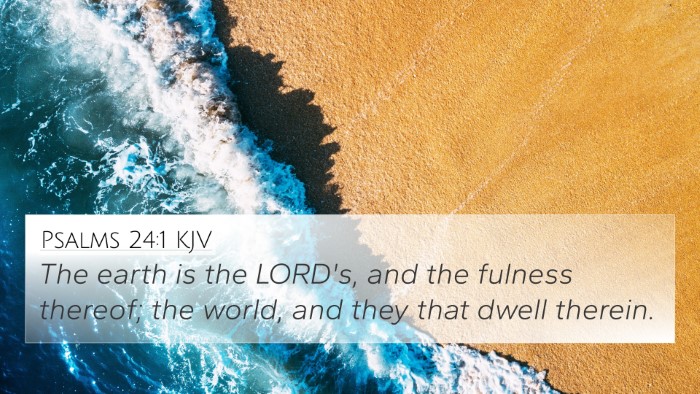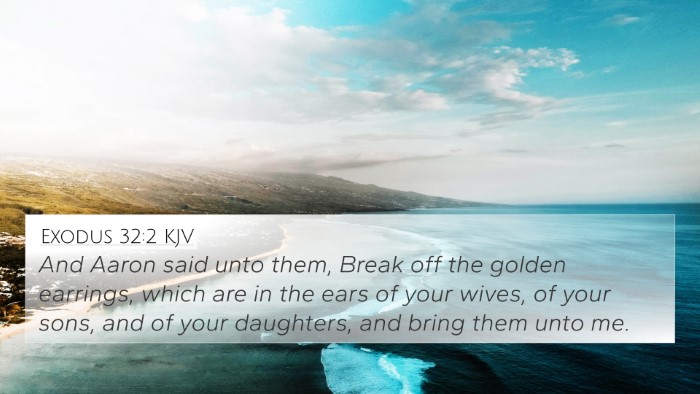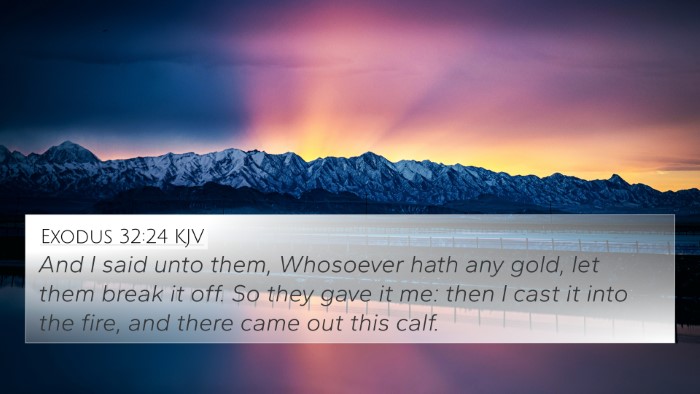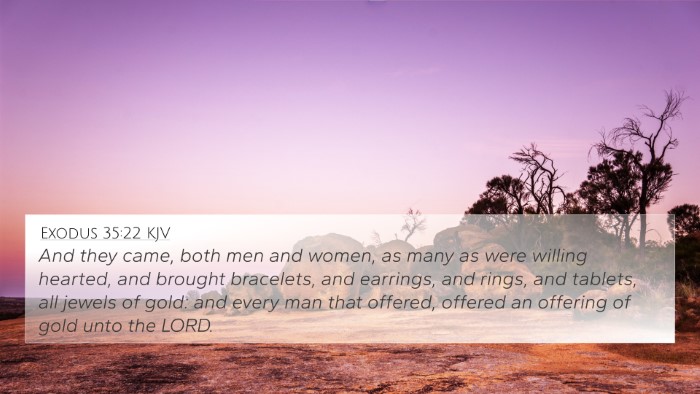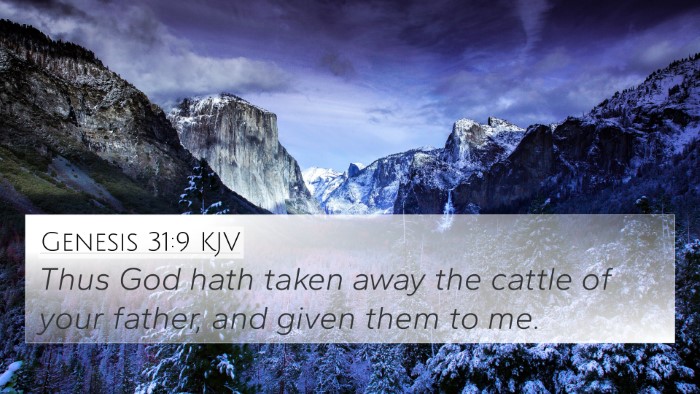Understanding Exodus 11:2
Exodus 11:2 presents a crucial moment in the narrative of Israel's deliverance from Egypt. The verse states:
"Speak now in the ears of the people, and let every man borrow of his neighbor, and every woman of her neighbor, jewels of silver and jewels of gold." (KJV)
This verse prompts a deeper study into several layers of meaning, encompassing themes of obedience, preparation for deliverance, and God's provision.
Context and Themes
In the context of the plagues, God commands Moses to instruct the Israelites to request riches from the Egyptians. This preparatory action serves to set the stage for the Israelites’ exodus.
- Divine Instruction: The command reflects God's authority and control over the situation.
- Symbol of Favor: The requesting of jewels signifies Israel's favor in the eyes of God as His chosen people.
- Fulfillment of Prophecy: This act aligns with God's promise to Abraham regarding the wealth of the Egyptians being given to the Israelites upon their departure (Genesis 15:14).
Insights from Commentaries
Matthew Henry
Henry emphasizes the importance of the Israelites' readiness and obedience to God's command. He notes that the act of borrowing can be viewed as a demonstration of faith, as they trust that God will indeed deliver them and provide for their needs.
Albert Barnes
Barnes elaborates on the significance of "borrowing," suggesting it indicates a transfer of wealth that symbolizes the Israelites' transition from slavery to freedom. He points out that this act fulfilled God's word regarding the plunder of the Egyptians (Exodus 3:22).
Adam Clarke
Clarke provides a historical and cultural insight, explaining that in the context of ancient Near Eastern customs, borrowing was a legitimate social practice. He highlights the irony of the situation where the enslaved people would emerge with wealth from their oppressors.
Connections with Other Biblical Texts
Exodus 11:2 has several inter-Biblical connections highlighting themes of God's provocation, deliverance, and fulfillment of promises. Notable cross-references include:
- Genesis 15:14: God's promise to Abraham about the Israelites coming out with wealth.
- Exodus 3:22: The command to borrow jewelry from the Egyptians before the exodus.
- Exodus 12:35-36: Actual execution of borrowing and the Egyptians fulfilling the request as constrained by God.
- Psalms 105:37: A poetic reflection on Israel being brought out of Egypt laden with silver and gold.
- James 1:17: All good and perfect gifts coming from God should be recognized, reflecting the riches given to Israel.
- Isaiah 52:11: Call for Israel to leave Babylon, connecting with the theme of departure and preparation.
- Hebrews 11:24-26: Moses’ faith in choosing to suffer with his people instead of enjoying the fleeting pleasures of sin.
- Acts 7:43: Stephen’s recounting of Israel's suffering and eventual liberation, emphasizing their chosen status.
- Matthew 2:15: Jesus as a fulfillment of the call from Egypt, linking His story back to Israel’s significant exodus.
- Romans 8:32: God’s provision to his people echoes across the New Testament, blending with themes of grace.
Importance of Cross-Referencing in Biblical Studies
Understanding Exodus 11:2 benefits greatly from cross-referencing and examining similar themes and events that occur throughout Scripture. Such studies help in achieving a holistic view of God’s dealings with His people.
Tools for Effective Bible Cross-Referencing
To fully engage in this kind of study, several tools and methods can help:
- Bible Concordance: A reference tool that indexes words and phrases in the Bible.
- Bible Cross-Reference Guide: A resource that links related verses.
- Cross-Reference Bible Study: A method that encourages exploration of themes across scripture.
- Bible Chain References: A systematic approach to connect various verses that relate to each other.
- Comprehensive Bible Cross-Reference Materials: Books and online resources that delve deeply into scriptural references.
Concluding Thoughts
Exodus 11:2 is not merely a historical command but a portal into understanding God’s greater narrative of redemption and provision. The reflections from esteemed theologians coupled with the pertinent scriptural connections enrich this study.
The exploration of this verse encourages believers to see the interwoven nature of Scripture and the importance of cross-referencing when seeking to understand God’s will and provisions for His people.
